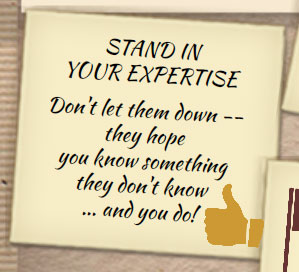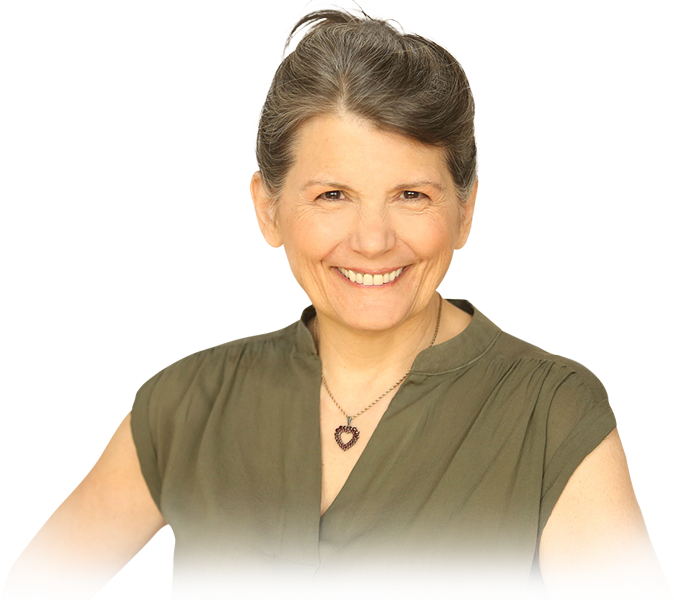
Claim the expertise you have — because when you hide your light under a basket, you make it impossible for people to know why they should work with you!
If you had a few 175′ Sugar Pines looming over your house — 20 feet from your back door — and you worried about them every time the wind whipped them around at 40 or 50 mph, would you:
A) call any old guy with a chain saw and a broken-down pickup, or
B) find an expert who can
- tell you whether or not nor you need to worry about it, and
- assure you that if you do need to worry about it, he — or she — can take care of it without dropping them on your house?
I’m guessing you don’t need too much time to think about it, and if you didn’t pick “B” you have my sympathy regarding the damage to your house.
Your clients aren’t much different. Anybody with enough reason to be looking for a Feldenkrais® Practitioner not only has reason to look for an expert, but probably IS looking for one. In order to be the practitioner of choice, you need to know what your expertise is, own it and communicate it. Otherwise, why would they pick you?
I should tell you right now that my belief is that if you graduated from an 800-hour training, you have more than enough to begin! So before you run off to sign up for even more credentials — let me tell you that I understand why you might be thinking you should do that. There was a time when I believed that my expertise was my credentials. I learned the hard way — by having plenty of credentials and not enough clients — that people don’t decide to work with me on the basis of the letters after my name or even because of the modality I trained in.
What people want is help solving their problem. They know you can help them get what they want when you communicate your expertise in every phase of your interaction.
Here are three ways you can do that:
- Be prepared to tell people how your clients benefit from working with you.
- Turn your ‘first lessons’ into consultations; in every one, make a recommendation about what the person needs to do to realize their unavowed dreams.
- Stop negotiating your fees to get a client.
Why should you bother changing your habits? Well, actually, if you have all the clients you want, and you love working with every one of them, you shouldn’t change a thing!
But if you’re reading these posts to get more clients, and get the practice you want, there are at least 2 good reasons to change. The first is that when you learn to do this so that it feels like you, nothing is more effective at helping people understand the value of working with you.
The second is that people expect it. They want to find out if what you offer is a good fit for them. And part of your job is to help them make that decision in a way that makes sense to them.
Isn’t that what you would expect from the arborist who’s going to make it possible for you to sleep through the next windstorm?
~~~~~

